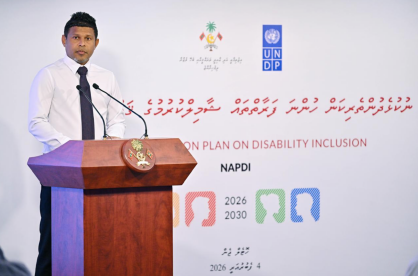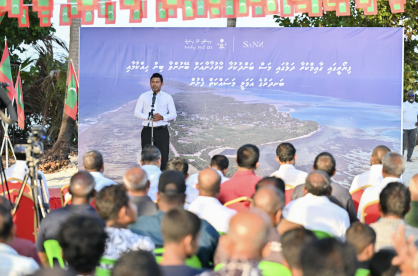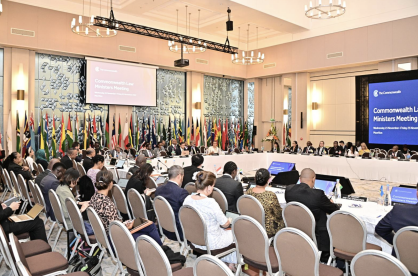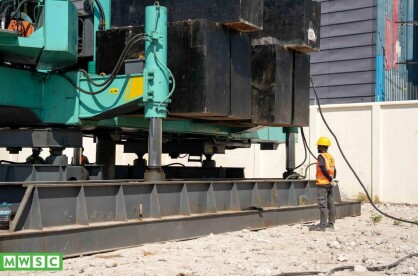Every government in the Maldives that has come to power since 2008 did so partly on the premise of fighting corruption and the promise of recovering state assets allegedly lost during the preceding administration.
The administration of President Mohamed Nasheed, in May 2009, set up a presidential commission to investigate allegations of corruption during his predecessor, Maumoon Abdula Gayoom's 30-year administration. This commission was dissolved by his successor, President Mohamed Waheed, shortly after he assumed office in February 2012. President Abdulla Yameen, who came to power in 2013, established a State Asset Recovery Commission in July 2017, to oversee the recovery of state asset flagged by relevant state anti-corruption bodies. President Ibrahim Mohamed Solih, who came to power on a manifesto of 'Zero-Tolerance' to corruption, yet again established a Presidential Commission on Corruption and Asset Recovery on 17 November 2018.
Sadly, similar to previous commissions set up to recover state assets lost to corruption, this latest iteration has also now been dissolved, without having achieved any of the objectives that it was tasked with and having burned to millions of Rufiyaa in the process.
The State Assets Recovery Commission (SARC), established during the Yameen administration, appeared to have made some headway in the fight against corruption. With the overarching powers granted to it to instruct the Ministry of Finance to recover lost funds, and to pursue civil litigation through the Attorney General's Office, the commission had instructed the Ministry of Finance to issue notice against former President Nasheed and six other state officials to repay 'misused' state funds. Two officials are reported to have paid back the amounts ordered. However, the question remains as to whether the charges and orders were politically motivated or not, as is usual.
The Commission established by President Solih was granted overarching powers and authorities, having been 'forced' through the parliament, amidst protestations that existing state authorities already had the powers vested in them to pursue the same objectives. While it is unclear whether the commission had a clear end date by which time its investigations should have been concluded, it was, curiously, only tasked with recovering losses incurred from January 2012 until 17 November 2018 – the duration of the terms of former Presidents Waheed and Yameen. This again brings into question as to whether the commission was politically motivated – if not, why only these specific dates covering the specific terms of these two presidents. Why not Nasheed's administration or go back even further to Gayoom's 30-year rule.
And now, President Solih's Commission has followed in the same footsteps as those that came before. The President's Office on 17 March 2022 announced that President Solih has dissolved the Asset Recovery Commission, and that its ongoing investigations will now be handed over to the Anti-Corruption Commission (ACC) – a body that had been in existence even at the time the commission was established.
Solih's Asset Recovery Commission had submitted a report to him, where it said that 37 islands and 12 lagoons had been fraudulently leased for tourism, at lower acquisition costs, resulting in massive losses to the state. The loss, through the Maldives Marketing and Public Relations Corporation (MMPRC), is reported to be the biggest loss of state assets to date.
The Commission, it has been reported, was actively pursuing 30 separate cases in relation to the MMPRC corruption – of these, however, only two have been sent for prosecution, and five more are reportedly ready to be sent for prosecution. Here again though, it is notable that the current cases at trial are those against former President Yameen, and one of his close associates and one-time coalition partner, Member of Parliament for the Meedhoo constituency, Ahmed Siyam's companies.
The dissolution of the Commission has also raised concerns over the bill incurred by it during its term – a whopping total of MVR9.9 million has been spent from public monies on the commission, mainly on paying the salaries of commission members and staff, with nothing to show for it.
The public, who had been quite hopeful on the Solih government's Zero Tolerance yarn, now remain disillusioned, with little to nothing done in the fight against corruption, except perhaps mere lip service to a pledge. Add to this the picture painted by the government's stance towards Minister of Youth, Sports and Community Empowerment, Ahmed Mahloof, who is currently undergoing trial for allegedly accepting bribes, and the apparent failure of the government to bring back former Minister of Tourism Ali Waheed to face charges – all these actions speak in a loud voice that zero-tolerance to corruption appears to have been de-commissioned.






